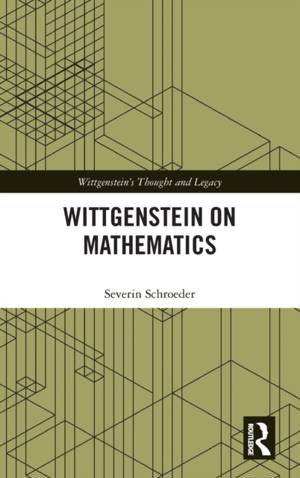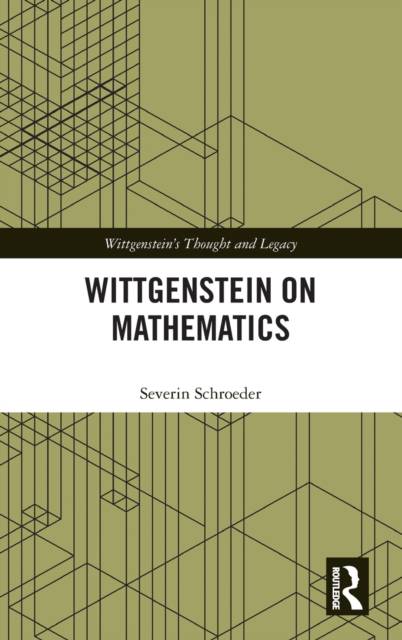
- Retrait gratuit dans votre magasin Club
- 7.000.000 titres dans notre catalogue
- Payer en toute sécurité
- Toujours un magasin près de chez vous
- Retrait gratuit dans votre magasin Club
- 7.000.0000 titres dans notre catalogue
- Payer en toute sécurité
- Toujours un magasin près de chez vous
Description
This book offers a detailed account and discussion of Ludwig Wittgenstein's philosophy of mathematics. In Part I, the stage is set with a brief presentation of Frege's logicist attempt to provide arithmetic with a foundation and Wittgenstein's criticisms of it, followed by sketches of Wittgenstein's early views of mathematics, in the Tractatus and in the early 1930s. Then (in Part II), Wittgenstein's mature philosophy of mathematics (1937-44) is carefully presented and examined. Schroeder explains that it is based on two key ideas: the calculus view and the grammar view. On the one hand, mathematics is seen as a human activity -- calculation -- rather than a theory. On the other hand, the results of mathematical calculations serve as grammatical norms. The following chapters (on mathematics as grammar; rule-following; conventionalism; the empirical basis of mathematics; the role of proof) explore the tension between those two key ideas and suggest a way in which it can be resolved. Finally, there are chapters analysing and defending Wittgenstein's provocative views on Hilbert's Formalism and the quest for consistency proofs and on Gödel's incompleteness theorems.
Spécifications
Parties prenantes
- Auteur(s) :
- Editeur:
Contenu
- Nombre de pages :
- 238
- Langue:
- Anglais
- Collection :
Caractéristiques
- EAN:
- 9781844658626
- Date de parution :
- 30-12-20
- Format:
- Livre relié
- Format numérique:
- Genaaid
- Dimensions :
- 155 mm x 231 mm
- Poids :
- 476 g

Les avis
Nous publions uniquement les avis qui respectent les conditions requises. Consultez nos conditions pour les avis.






